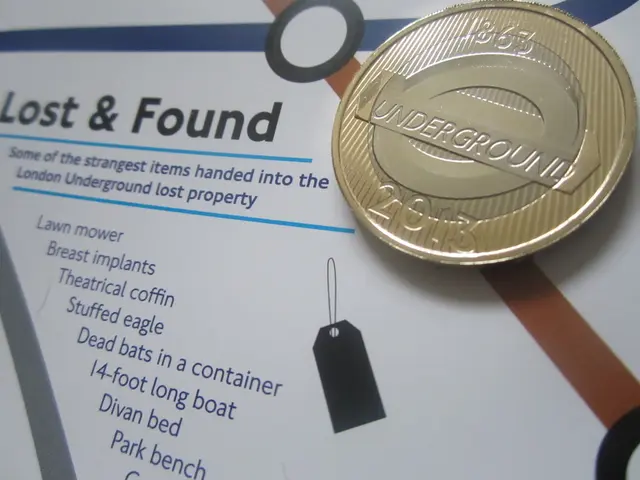Fintech startups in South Africa to keep an eye on in 2025
South Africa's fintech sector is flourishing, with a host of promising startups making waves in the industry. Among these, Tata-iMali, TurnStay, and Sticitt are notable players that have recently secured funding.
Tata-iMali, a fintech startup based in South Africa, has built a low-cost blockchain wallet and point-of-sale system for merchants. The company, founded in 2023 by Gregory Andrews and Donel Chihoma, raised a significant $150,000 in an angel round from Stefan Thomas, the former CTO of Ripple, in 2025. Tata-iMali's innovative technology is expected to support informal merchants and small businesses by enabling low-cost digital payments.
Another fintech startup, TurnStay, focuses on the travel industry. The company claims to shrink the cost of international payments by up to 70% for travel businesses. Since its inception, TurnStay has processed over R50 million in transaction value, helping African hotels, guesthouses, and travel companies get paid, especially by international customers. In August 2025, TurnStay raised $2 million in a seed round led by First Circle Capital.
Sticitt, a cashless payments and financial literacy platform, is making strides in the education sector. Live in 841 schools and serving over 75,700 users, Sticitt helps small and medium-sized businesses (SMEs) get quick access to credit by buying their unpaid invoices or purchase orders. In July 2025, Sticitt raised an undisclosed Series A round led by Knife Capital.
The fintech landscape in South Africa is diverse, with around 30% of startups focusing on payments and money transfers. The country hosts approximately 1,510 fintech companies, making up nearly 40% of Africa's total fintech earnings. This thriving ecosystem is attractive due to a large underbanked population (~3.9 million) and 91% smartphone penetration, fueling fintech growth in alternative lending and digital payments sectors relevant to informal merchants and small businesses.
Foreign fintech entrants like Revolut, a global digital bank with 60 million customers, have also entered the South African market in 2025, potentially supporting small businesses with a full suite of financial services including loans and payments.
In Q2 2025, fintech startups across Africa raised $157M equity, up 33% from Q1, signaling strong momentum for fintech funding. While direct mentions of startups specifically targeting schools, travel, or informal merchants in South Africa with recent funding are sparse, Tata-iMali stands out for informal merchants and small businesses through blockchain payment tech.
UsPlus, a fintech startup that helps SMEs get quick access to credit, has advanced more than $130 million to South African SMEs using its model, helping over 700 businesses and supporting thousands of jobs. In January 2025, UsPlus secured $2 million in funding from the Verdant Capital Hybrid Fund. This investment for UsPlus was structured as junior convertible debentures and is intended to expand UsPlus's working capital solutions for SMEs across South Africa. Sticitt, another notable player, has facilitated transactions exceeding ZAR 6.3 billion ($340 million).
Tata-iMali operates using ZARP, a Rand-backed stablecoin, which enables instant payment settlement. This innovative technology could revolutionise the way small businesses and informal merchants in South Africa handle transactions, making digital payments more accessible and affordable.
In summary, South Africa's fintech scene is robust with considerable funding activity, foreign entrants like Revolut joining in 2025, and rising startups such as Tata-iMali supporting informal merchants and small business financial inclusion. The broader fintech landscape includes many companies focused on alternative lending, payments, and digital wallets, which serve informal and small business needs.
- Tata-iMali, a South African fintech startup, has introduced a blockchain wallet and point-of-sale system for low-cost digital payments, which is expected to aid informal merchants and small businesses.
- In 2025, TurnStay, another fintech startup based in South Africa, secured $2 million in a seed round led by First Circle Capital, providing a cost-effective solution for international payments in the travel industry.
- Sticitt, a fintech startup focused on cashless payments and financial literacy, has raised an undisclosed Series A round led by Knife Capital, helping small and medium-sized businesses (SMEs) access quick credit.
- Foreign fintech entrants like Revolut have entered South Africa's market, enhancing the range of financial services offered to small businesses, including loans and payments.
- Financing remains active in the South African fintech sector, with investments being made in startups like UsPlus, which has provided over $130 million in credit to SMEs.






